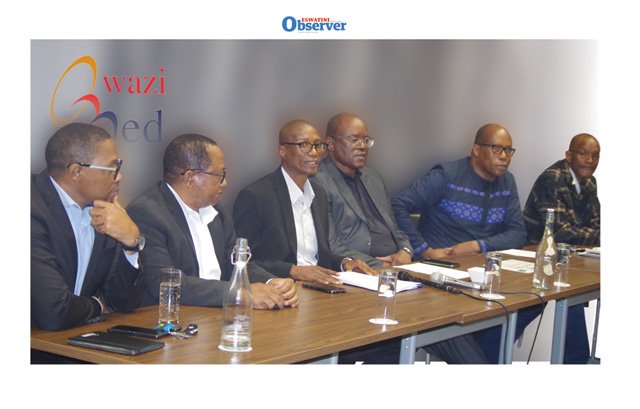By Andile Dlamini | 2022-10-27

Minister of Health Lizzie Nkosi has officially launched the 2022 World AIDS Day commemoration under the theme ‘Equalise: Eswatini Ending AIDS for all’.
Speaking at the official launch of the 2022 World AIDS Day, held at Sincephetelo MVA Fund auditorium in Mbabane, Nkosi said Eswatini had met and surpassed the 95-95-95 target that had been set by the United Nations Programme on HIV/AIDS (USAIDS).
The target simply means to diagnose 95 per cent of all HIV positive individuals, provide antiretroviral therapy for 95 per cent of those diagnosed and achieve the viral suppression of 95 per cent of those on treatment by the year 2030.
“Participants from 15 years and older are at 94-97-96 per cent. Females are at 95-98-96 per cent and males at 92-96-97 per cent. When the SHIMS 3 results were examined by the age-group, youth from ages 15-24 they had a lower achievement on the cascade, at 84-96-90 for females and for 91-96-87 for males,” she said.
Minister Nkosi said these results were concerning and already showed the direction to be taken by the country.
“These concerning results on youth already point to the direction the response should take in ensuring that the youth continue to be the programme focus of HIV prevention and service delivery in the kingdom,” she said.
The minister however said despite these concerns, the results highlighted the sustained progress the country had made towards HIV testing and treatment over the past five years, despite COVID-19 disruptions.
“It further shows that sustaining the three 95s was achievable in high HIV disease-burden settings.
The improvement in all 95s between 2016 and 2021 demonstrates the return on continued investments in HIV service delivery and data-driven programmes. On access to treatment, Eswatini has full access for all,” she said.
She said while the country rejoiced in this progress, there was still the issue of faltering HIV response in the country, where entire groups of people were being left highly vulnerable to HIV infection and unable to access HIV treatment, prevention and care services.
“Data shows that HIV infections are increasing in 38 countries worldwide, including Eswatini and that the pandemic continues to have the worst impact on adolescent girls and young women and key populations,” he said.
The minister said ending the AIDS pandemic as a public health threat in Eswatini would require additional investment and relentless focus on challenging gender-based violence, gender inequalities and other social and structural biases that made high risk populations vulnerable to infection and kept them away from HIV prevention, treatment and care services.
Minister Nkosi said punitive laws that criminalised and marginalised vulnerable groups of people were denying the right to health to these groups of key populations and holding the HIV response backwards.
“As shown on SHIMS3 report, Eswatini making all efforts to ensure equal access to treatment for all, including young people, however, the challenge remains the social, structural, systems and service drivers that fuel inequalities and increase HIV vulnerability.
These challenges led to startling statistics as we saw that in 2020 there were 37.7 million people living with HIV worldwide and 1.5 million new infections,” Nkosi said.
share story
Post Your Comments Below
Social media users have reacted with shock and sorrow to the death of former Mhlume Unite...

Sisonkhe FC ……........….. (0)2
Mpendulo 55th, Thab...
Health officials have reported a significant decrease in new HIV infections among men, in...

THE recent turn of events at SwaziMed has underscored deep-rooted governance challenges that thre...
All material © Swazi Observer. Material may not be published or reproduced in any form without prior written permission.
Design by Real Image Internet